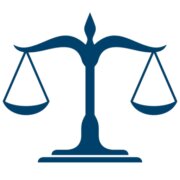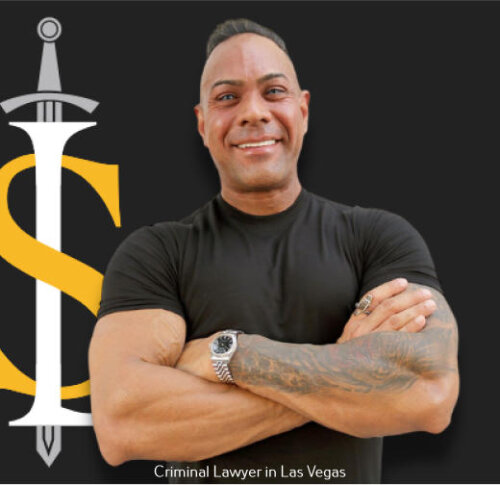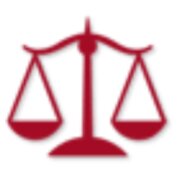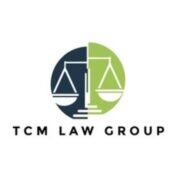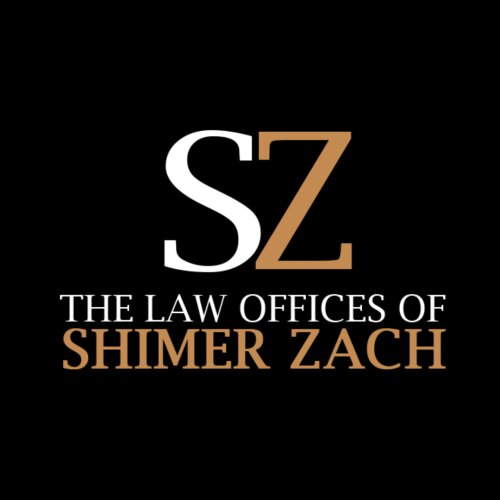Best Drug Crime Lawyers in Las Vegas
Share your needs with us, get contacted by law firms.
Free. Takes 2 min.
List of the best lawyers in Las Vegas, United States
About Drug Crime Law in Las Vegas, United States
This guide explains how drug laws operate in Las Vegas, Nevada, and what people charged with drug-related offenses should know. Drug crime law in Las Vegas is governed primarily by Nevada state statutes and enforced by local agencies in Clark County, including the Las Vegas Metropolitan Police Department. Offenses can range from simple possession to trafficking, manufacturing, distribution, and related crimes such as maintaining a drug house or prescription fraud. Penalties vary based on the type of substance, the quantity involved, prior criminal history, and whether the conduct occurred on state, local, or federal property. Nevada also has separate rules for marijuana following statewide legalization of adult-use cannabis, but public consumption and some possession or distribution scenarios remain illegal.
Why You May Need a Lawyer
Facing a drug charge can be complex and high-stakes. A qualified criminal defense lawyer who understands Nevada drug laws and local court practices can help in many ways:
- Explain the charge and potential penalties, including short-term and long-term consequences.
- Evaluate whether evidence against you was obtained lawfully - for example, whether searches, seizures, or arrests complied with constitutional protections.
- Challenge the admissibility of evidence - including illegal search and seizure, faulty field tests, or chain-of-custody errors for lab results.
- Negotiate with prosecutors to reduce charges or seek diversion alternatives such as drug court or treatment-based probation.
- Develop a defense strategy for trial when appropriate, including factual defenses like lack of knowledge or possession versus mere proximity, and legal defenses like entrapment or Fourth Amendment violations.
- Advise about collateral consequences - immigration status, employment, housing, firearm rights, professional licensing, and student financial aid can all be affected by a conviction.
Local Laws Overview
Below are key local and state-level features that matter for drug cases in Las Vegas and Clark County:
- Governing statutes - Nevada drug offenses are primarily set out in the Nevada Revised Statutes relating to controlled substances. These statutes classify controlled substances by schedule and define offenses such as possession, possession with intent to sell, trafficking, manufacture, and cultivation.
- Marijuana regime - Nevada allows adult-use marijuana for people 21 and older with possession limits and home cultivation limits. However, public use, distribution without a license, delivery to minors, and possession beyond legal limits remain criminal or administrative violations.
- Quantity and scheduling - The type of controlled substance and the quantity can change the nature of an offense. Small-quantity possession may be treated differently than possession of amounts that indicate distribution or trafficking, which carry significantly higher penalties.
- Enhanced penalties - Certain circumstances bring enhanced charges or penalties, such as possession near a school, involving minors, possession of weapons, large-scale distribution, or prior felony convictions.
- Local enforcement and courts - Arrests in Las Vegas are typically handled by LVMPD, and cases proceed through the Clark County court system. Some cases may be prosecuted in federal court when offenses involve federal property, interstate trafficking, or federal statutes.
- Diversion and treatment programs - Clark County operates treatment-focused alternatives to incarceration, including drug courts and probation-based treatment programs. Eligibility depends on the offense, criminal history, and other factors.
Frequently Asked Questions
What counts as illegal possession in Las Vegas?
Illegal possession generally means knowingly having a controlled substance without a valid prescription or other legal authorization. Possession can be actual - on your person - or constructive - in a place you control. Whether possession is chargeable depends on the substance type, quantity, and your intent. Marijuana is an exception in limited adult-use amounts, but other controlled substances remain illegal without prescription or authorization.
What are the differences between possession, possession with intent to sell, and trafficking?
Possession is simply having the drug. Possession with intent to sell means prosecutors believe the quantity, packaging, or other evidence indicates you intended to distribute the drug. Trafficking usually refers to larger quantities that meet statutory thresholds and carry much harsher penalties. Courts look at factors like amount, packaging, scales, large sums of cash, communications about sales, and other tools of distribution.
Can police search me or my car for drugs without a warrant?
Police need a warrant to search when the Fourth Amendment requires one. There are important exceptions - for example, searches incident to a lawful arrest, searches based on probable cause, vehicle searches under certain circumstances, and searches based on consent. Whether a specific search was lawful depends on the facts. An attorney can look at the circumstances and potentially challenge unlawful searches to exclude the evidence.
What if the drug found is prescription medication that I take legitimately?
If you have a valid prescription and possess medication consistent with that prescription, that can be a legal defense. However, issues arise if the medication is not in its original container, is inconsistent with the prescription, or was prescribed to someone else. Keep prescriptions and medical documentation and tell your attorney about any lawful prescriptions you possess.
Are there alternatives to jail - like drug court or diversion programs?
Yes. Clark County and Nevada courts offer diversion and treatment-based options for certain eligible defendants, including drug courts. These programs focus on treatment and supervision in exchange for reduced or dismissed charges upon successful completion. Eligibility depends on the offense type, prior record, and prosecutor and judge approval.
How much will a drug conviction affect my life beyond jail or fines?
Convictions can have broad collateral consequences - loss of employment or professional licenses, difficulty finding housing, immigration consequences for non-citizens, loss of firearm rights, ineligibility for certain public benefits, and impacts on parental rights. A lawyer can explain the likely collateral effects and strategies to mitigate them.
Will testing methods and lab results be reliable in my case?
Laboratory testing is usually a key part of drug prosecutions, but tests can be challenged on validity, chain of custody, and laboratory procedures. Field tests used by officers are sometimes unreliable. Defense attorneys can request discovery, review lab protocols, consult experts, and challenge scientific evidence where appropriate.
If I am a non-citizen, how will a drug charge affect my immigration status?
Drug convictions can have serious immigration consequences, including deportation, inadmissibility, or denial of naturalization. Some offenses are categorically deportable or can be considered aggravated felonies. Non-citizens should consult both a criminal defense attorney and an immigration attorney as early as possible.
Can I get my record expunged or sealed after a drug conviction?
Eligibility for expungement or sealing depends on the offense, the sentence, time passed since completion, and Nevada law. Some misdemeanor convictions and certain diversion outcomes may be eligible for sealing, while many felony convictions have stricter limitations. An attorney can evaluate eligibility and help with post-conviction relief options when available.
What should I do immediately after an arrest for a drug charge?
If you are arrested, the most important steps are to stay calm, assert your right to remain silent, and ask for an attorney. Avoid voluntary statements about the incident or consenting to searches. Document what happened as soon as you can and tell your attorney about any medical prescriptions, witnesses, or relevant materials. Follow court instructions and attend all hearings and meetings with your lawyer.
Additional Resources
Below are agencies and programs that can provide information or assistance related to drug cases in Las Vegas - contact them for factual information or to learn about local procedures:
- Las Vegas Metropolitan Police Department - local law enforcement responsible for arrests and initial investigations in many drug cases in Las Vegas.
- Clark County District Attorney - the office that prosecutes criminal cases in Clark County and can explain charging practices and diversion programs.
- Nevada Revised Statutes - the state statutes that define drug offenses and penalties; local courts use these laws in prosecutions.
- Clark County Drug Court and other treatment courts - specialized court programs that offer treatment-based alternatives for eligible defendants.
- Nevada State Public Defender and local criminal defense attorneys - legal counsel for people who cannot afford private representation or who choose to hire counsel.
- Nevada Department of Health and Human Services - resources on substance use treatment and public health programs.
- Community-based treatment providers and substance abuse counselors in Clark County - for referrals to programs that courts may consider during sentencing or diversion.
Next Steps
If you or a loved one face a drug charge in Las Vegas, consider these practical next steps:
- Do not give statements to police without a lawyer present. Invoke your right to remain silent and request counsel.
- Contact a criminal defense attorney who has experience with drug cases in Clark County. If you cannot afford a private lawyer, ask about public defender eligibility at your first court appearance.
- Preserve evidence and documentation - prescriptions, medical records, witness names, photos, video, or receipts that could support your defense or explain circumstances.
- Ask your attorney about diversion, treatment programs, or pretrial release options. Early engagement with treatment providers can be useful when negotiating with prosecutors or courts.
- Keep a detailed timeline of events and any interactions with law enforcement. Avoid discussing your case on social media or with people who may later be witnesses for the prosecution.
- Attend all scheduled court dates and comply with pretrial conditions. Failure to appear can lead to additional charges and make resolution more difficult.
Remember - this guide is for general informational purposes and is not a substitute for individualized legal advice. For an assessment of your specific situation, contact a licensed criminal defense attorney who handles drug cases in Las Vegas.
Lawzana helps you find the best lawyers and law firms in Las Vegas through a curated and pre-screened list of qualified legal professionals. Our platform offers rankings and detailed profiles of attorneys and law firms, allowing you to compare based on practice areas, including Drug Crime, experience, and client feedback.
Each profile includes a description of the firm's areas of practice, client reviews, team members and partners, year of establishment, spoken languages, office locations, contact information, social media presence, and any published articles or resources. Most firms on our platform speak English and are experienced in both local and international legal matters.
Get a quote from top-rated law firms in Las Vegas, United States — quickly, securely, and without unnecessary hassle.
Disclaimer:
The information provided on this page is for general informational purposes only and does not constitute legal advice. While we strive to ensure the accuracy and relevance of the content, legal information may change over time, and interpretations of the law can vary. You should always consult with a qualified legal professional for advice specific to your situation.
We disclaim all liability for actions taken or not taken based on the content of this page. If you believe any information is incorrect or outdated, please contact us, and we will review and update it where appropriate.



